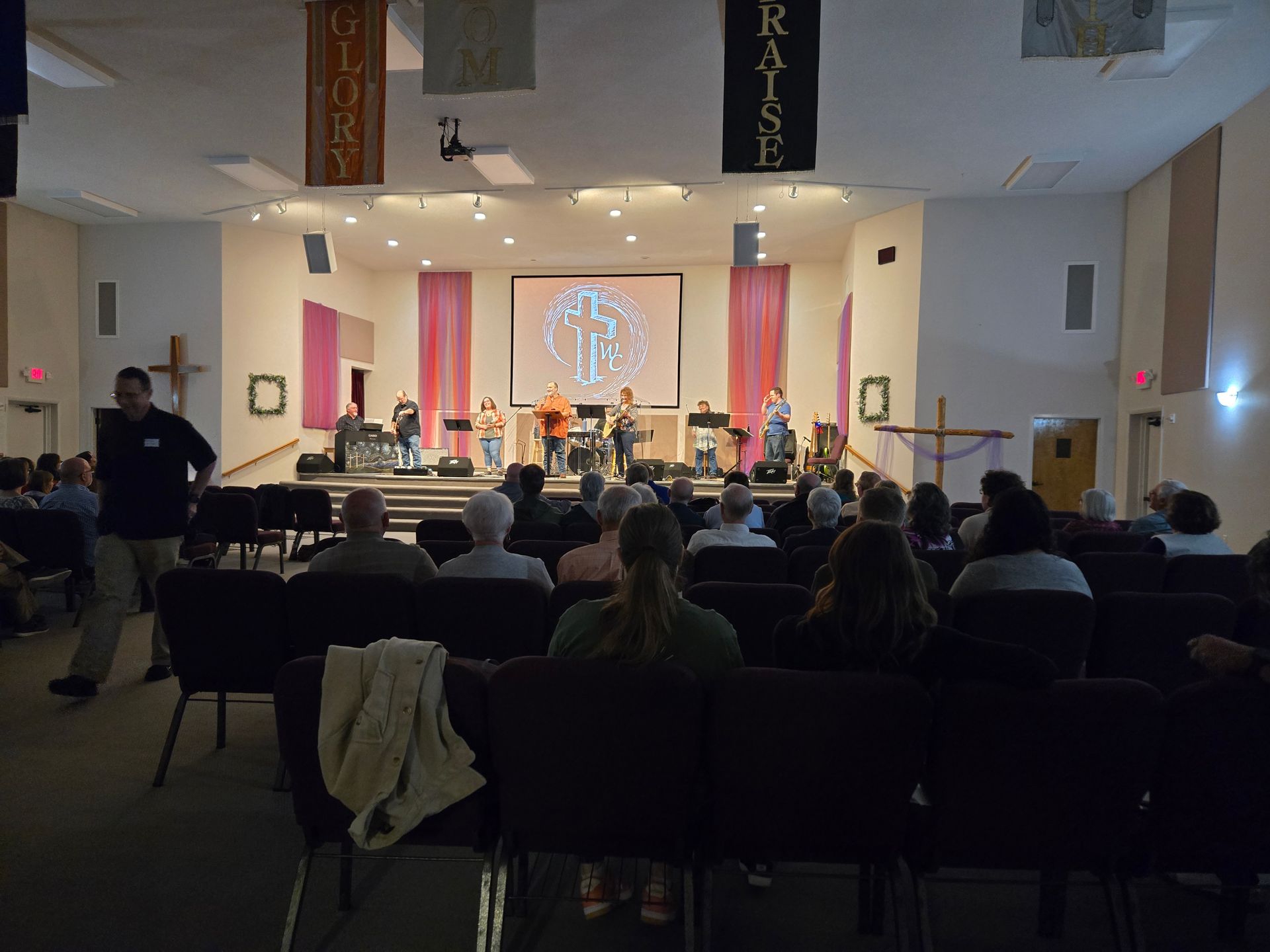Paying Ridiculous Attention to Jesus
Rick Lawrence is the keynote speaker for Basecamp: Engage Conference 2019, The Brethren Church’s annual youth gathering. Rick is an award-winning author, journalist, cultural researcher, editor, and national speaker, and he’s been executive editor of GROUP Magazine for 31 years. Rick is the author, co-author, or editor of 39 books and curriculums. He’s the general editor of the #1 bestselling Jesus-Centered Bible, and author of the recently released books Spiritual Grit, The Jesus-Centered Life, and Jesus-Centered Youth Ministry. And for the last four years, he’s led a “home church” for teenagers every week.
The most stressed-out people in the world are sitting right there in our church youth rooms every Wednesday night. Listen, and you’ll likely hear teenagers complaining about their workload— homework, college apps, choir tryouts, after-school jobs, ACT/SAT prep, chaos at home... The list of woes is long. And they’re not blowing smoke. According to a study by the American Psychological Association, no demographic in contemporary culture is more stressed out than adolescents. Gina Biegel, a psychotherapist and founder of Stressed Teens (stressedteens.com), studies teenagers who’ve sought counseling to help them with their stress.
She’s noticed how unaware most kids are of their tech-saturated environment, and the almost- constant noise it produces in their lives. “...Teens are really never in silence,” she tells CNN’s digital correspondent Kelly Wallace. “They never have this moment just to be with their thoughts, be with who they are and actually what that feels like, to learn how to be comfortable by yourself.”
When Biegel helped these overwhelmed and burned-out teenagers to learn what psychologists call “mindfulness” techniques, they saw a profound reduction in anxiety, depression, obsessive symptoms, and interpersonal problems. Now, “mindfulness” is a New Age-y word that turns a lot of people off. But at its core is a simple-but-profound spiritual habit I like to call “paying ridiculous attention.” Ellen Langer, a Harvard psychologist and author of Mindfulness, advocates a slow-down-and-pay- attention lifestyle that not only reduces stress but helps us focus on what’s most important in our lives.
Langer says: “When you’re being mindful, you’re simply noticing new things. Mindfulness is what you’re doing when you’re at leisure. [For example] if you are on a vacation, you’re looking for new things. It’s enjoyable rather than taxing. It’s mostly energy-begetting, not energy-consuming.” Patrick Cook-Deegan, head of a mentoring organization that helps schools develop mindfulness programs, says: “A large part of being a human being is having social, emotional, and attention skills. And in the majority of schools I visit, we don’t actually teach kids how to pay attention or how to deal with their inner states in a healthy way.”
My mission in life is to help teenagers and adults— stressed and distracted and margin-less—slow down an pay ridiculous attention to Jesus. When we teach them to pursue Jesus in this way, we not only help them find mental and emotional space in their lives, but we also give them the key to discovering transformational intimacy in their relationship with Jesus. The great English poet Elizabeth Barrett Browning wrote:
Earth’s crammed with heaven.
And every common bush afire with God; But only he who sees takes off his shoes;
The rest sit round it and pluck blackberries.
The difference between paying attention to the stories and teachings of Jesus as if “every common bush” was “afire with God,” and spending our days “sitting round” them and “plucking blackberries,” hinges on curiosity, and how much of it we’re willing to invest in the pursuit. Curiosity is the natural passion of children, and Jesus framed childlikeness as essential to our life with God. Paying ridiculous attention means we treat every detail of the things Jesus said and did as a wonder and a revelation and a portal into His heart.
When we’re helping our kids pay ridiculous attention to Jesus, we’re teaching them to slow down and notice the nuances of these stories about Jesus, and to the nudges of His Spirit, and then embrace their implications. It means we model and teach a passion for paying attention to the things He says and does instead of accepting the status quo—a kind of numbed disengagement. To use Langer’s definition, we simply help kids “notice new things” about Him, even (and especially) in stories they’ve heard since they were children. The rhythm looks like this...
- We show teenagers how to take a “vacation” perspective about Jesus, treating everything they read about Him as if it’s the first time they’ve ever experienced it.
- We show them how to read or listen to understand His heart, rather than copying down His “recipes.”
- We ask far more “why” questions about Him than we’d typically do, and always prefer “why” questions over “what, where, and how” questions. Why? Because “why” questions get at the heart, and it’s the heart that transforms us.
- We challenge them to never assume they already know what’s going on when Jesus is engaging someone. Instead, we show them how to come to everything with a child’s curiosity.
- We help them recognize that beauty is in the details, so we are always helping them chew on the details that surround Jesus’ behavior—and we let those insights lead them to a deeper understanding of Him.
When we show teenagers how to slow down and be more mindful of Jesus, their false beliefs about Him are obliterated, making way for an intimate relationship with the real Jesus, whose massive gravitational pull will capture them in His orbit. The greatest stress- reliever in life is a deepening attachment to Jesus.










